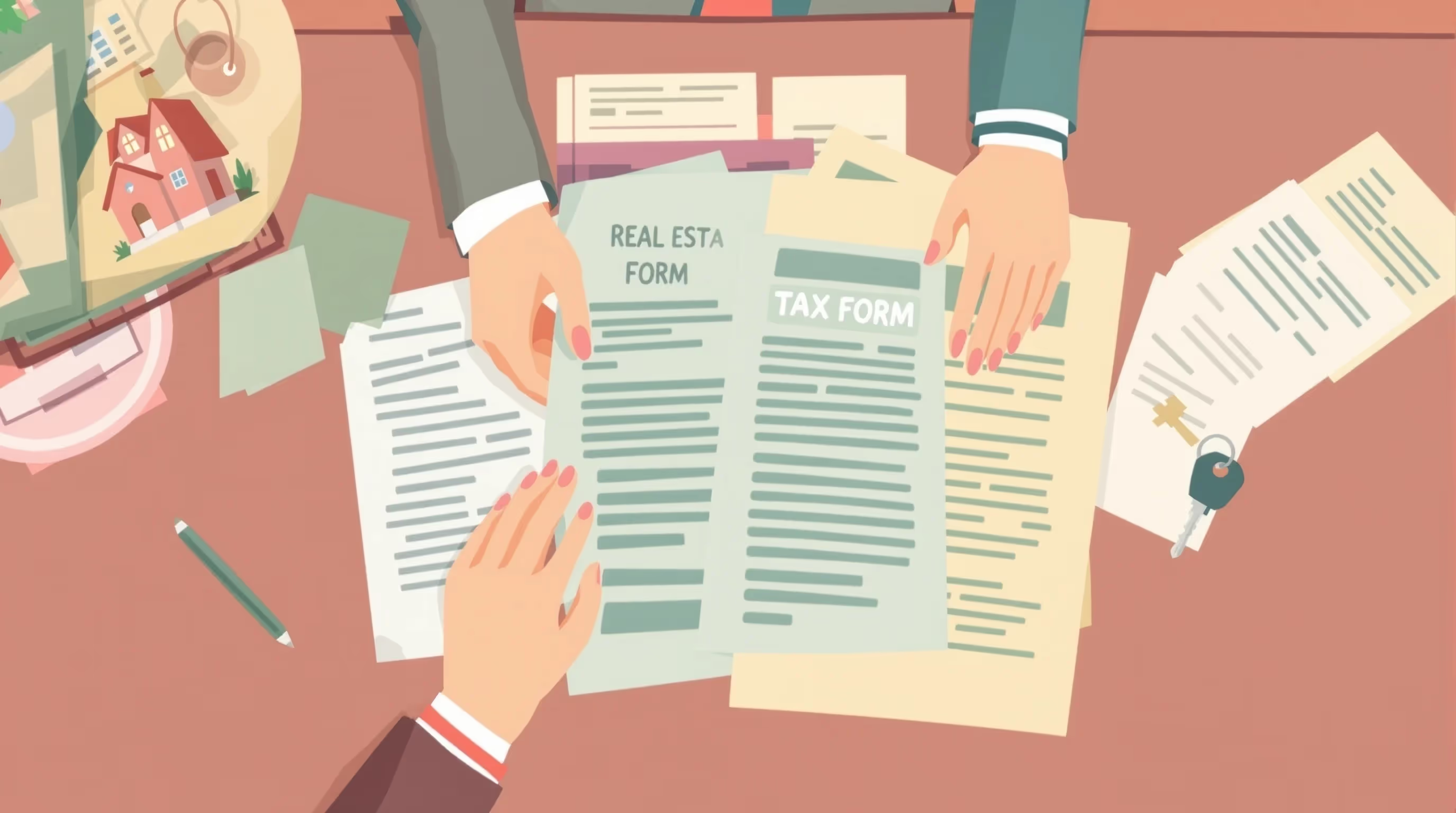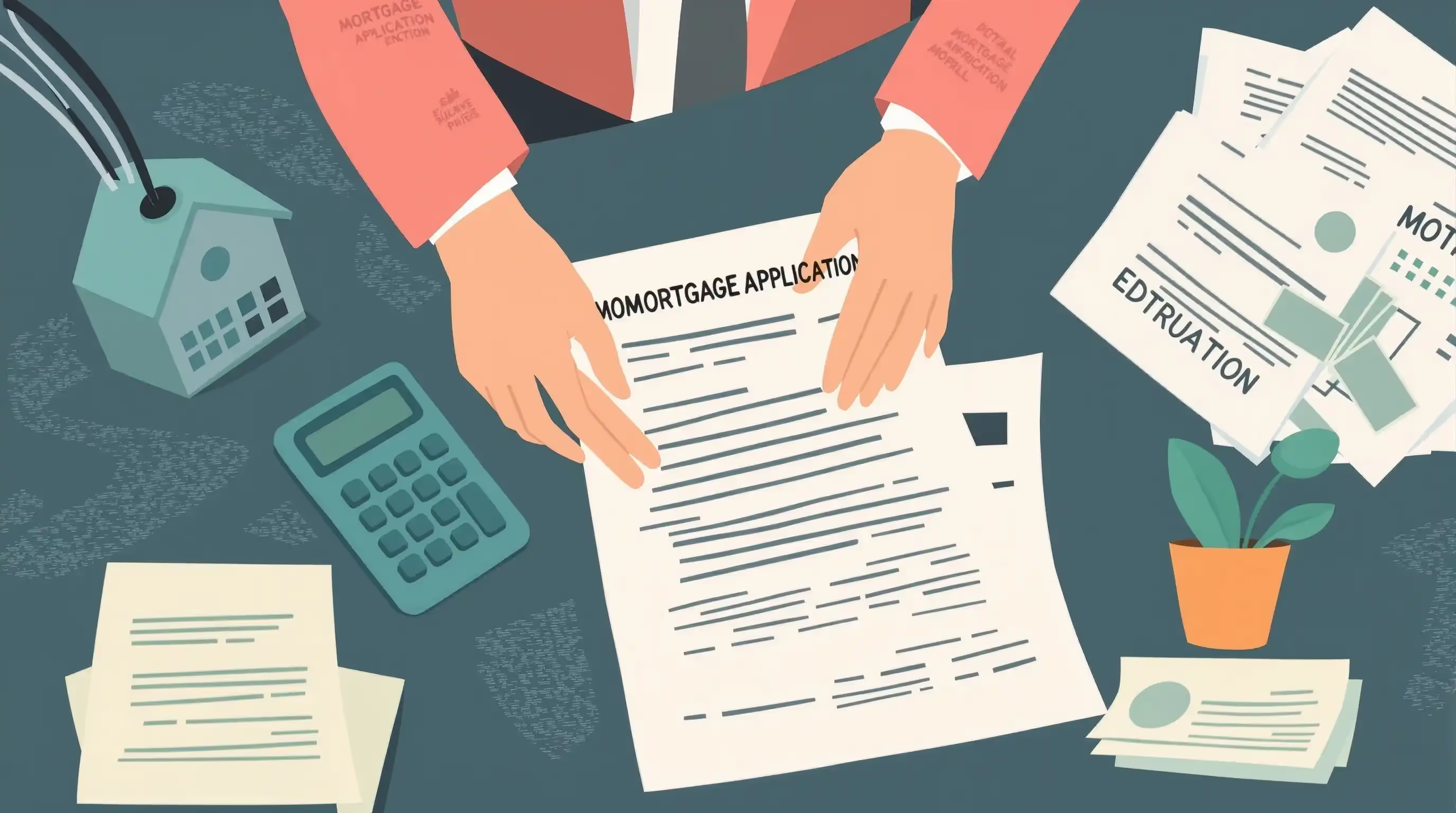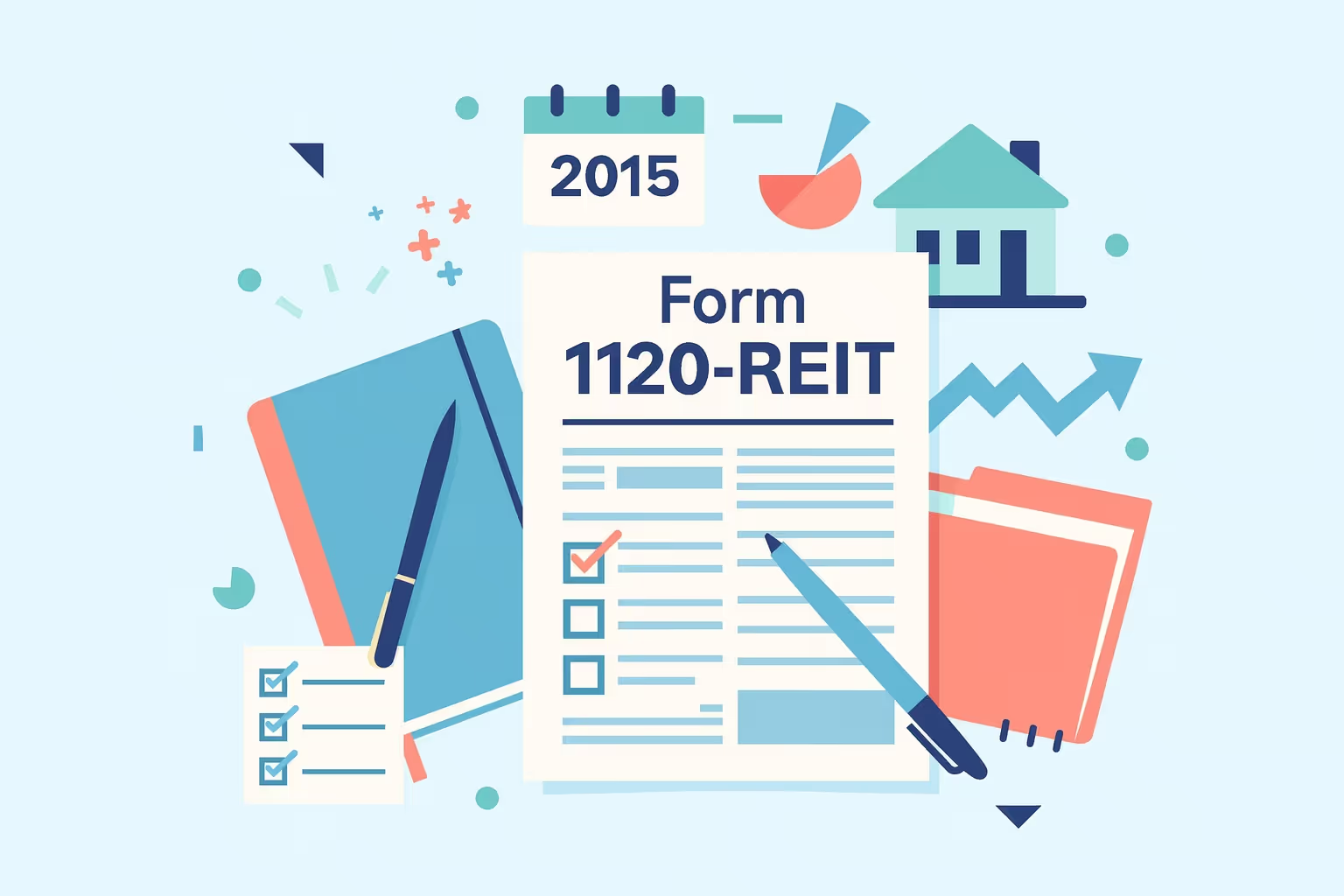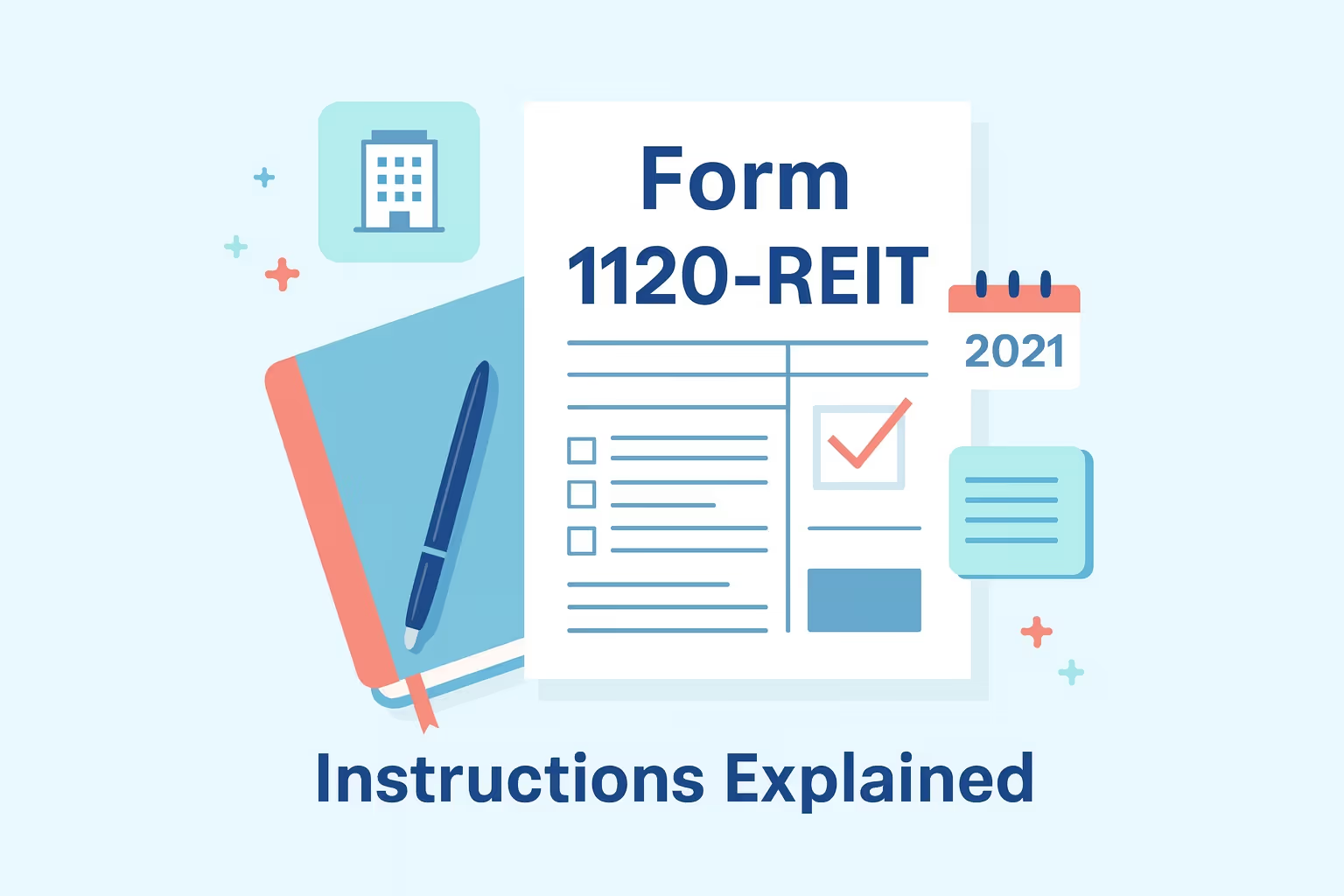
What IRS Form 1120-REIT (2015) Is For
IRS Form 1120-REIT (2015) is the official income tax return that real estate investment trusts must file for the 2015 tax year. A corporation, trust, or association that elects REIT status under federal government rules uses this income tax form to report income, deductions, taxes, tax credits, interest, penalties, and to calculate what they owe.
The IRS requires this tax return so that taxpayers can properly report their income, pay any outstanding taxes, claim allowable credits, and file the necessary forms to ensure compliance with tax laws. This tax year’s instructions refer taxpayers to various resources and tables that help calculate income, determine exemptions, and determine whether the taxpayer is eligible to claim any refund or credits.
For a detailed breakdown of filing requirements, eligibility rules, and step-by-step instructions, see our guide on Form 1120-REIT for 2015.
When You’d Use Form 1120-REIT for 2015 (Late or Amended Filing)
A corporation or business that missed the original March 15, 2016, deadline must file a late income tax return if the IRS sends a notice or if the filer discovers incorrect information that should be amended. An amended income tax return may be necessary when a REIT needs to correct income, deductions, or dividend calculations. Even though refund claims expired on March 15, 2019, late filing still helps taxpayers reduce future penalties, document income, and meet federal government requirements.
Late filing may be required for partnerships or employers that hold REIT interests, especially when partner income or funds were previously considered incorrect. This applies generally when the filer needs to send updated forms, report real estate income, or check data against IRS transcripts. Filing ensures the return is considered complete, even when the business owed tax from that year.
Key Rules Specific to 2015
- PATH Act rules apply: This rule applies to inevitable REIT spinoffs occurring after December 6, 2015, and taxpayers must consider whether their operations qualify for available tax credits or exemptions.
- Built-in gains recognition: This provision shortens the recognition period to five years, and the corporation must calculate gains in accordance with the IRS instructions for that tax year.
- REIT qualification tests: These tests require that at least 75% of the income come from real estate and 95% from passive sources, and the REIT must distribute at least 90% of its taxable income each year to qualify.
- EFTPS electronic payment: All deposits are required to be made through EFTPS, a service used by the federal government to process tax payments that taxpayers owe.
- REIT election continuity: Once made, a REIT election generally remains in effect each year unless revoked, and the taxpayer must meet annual tests to stay eligible.
Browse more tax form instructions and filing guides in our Forms Hub.
Step-by-Step (High Level)
- Gather the required records, including transcripts, financial resources, balance sheets, dividend data, and any example schedules necessary to complete the forms accurately.
- Use the 2015 instructions: The IRS instructions for 2015 apply to this tax year only, and taxpayers must refer to the correct forms and tables.
- Assemble schedules: Attach Schedule D, Schedule K, Schedule L, and any forms required to answer IRS questions or report partnerships and partner information.
- Send the completed return: File the return with the service center designated for the business location, and verify that all required forms are included and accurate.
- Hold copies for your records: Keep submitted forms, receipts, and proof of submission for at least three years to meet audit requirements.
Learn more about federal tax filing through our IRS Form Help Center.
Common Mistakes and How to Avoid Them
- Qualification test result errors: These can be avoided by carefully reviewing the IRS tables and instructions.
- Dividends paid deduction errors: Filers should calculate distributions carefully.
- Electronic payment noncompliance: Taxpayers should check all payment deadlines.
- Missing Form 8875 disclosures: Filers should review partner or subsidiary information.
- Incorrect schedule assembly: The filer should hold a checklist before mailing.
- Premature reasonable-cause claims: Filers should wait until the IRS sends a penalty notice.
Learn more about how to avoid business tax problems in our guide on How to File and Avoid Penalties.
What Happens After You File
Processing a late 2015 income tax return may take up to 16–20 weeks. The IRS will calculate penalties, including failure-to-file charges of 5% per month and failure-to-pay charges of 0.5% per month, plus interest owed from March 15, 2016. Notices confirm receipt, payments, and tax assessments. If taxpayers owe funds, installment plans through Form 9465 may be considered. Appeals options are available if the individual or corporation disagrees with the evaluation.
FAQs
What penalties apply to my late-filed IRS Form 1120-REIT (2015) income tax return?
Penalties for a late IRS Form 1120-REIT (2015) income tax return include monthly charges for late filing and late payment. The IRS calculates penalties based on the amount of income tax owed for that tax year and continues charging interest until the taxpayer pays the balance. These penalties apply to real estate investment trusts that file after the deadline has passed.
Can I still get an income tax refund from amending my 2015 tax return for real estate investment trusts?
Refunds for 2015 income tax returns are no longer available, as the statute of limitations expired in 2019. Even so, filing an amended tax return helps correct income, deductions, and taxes owed for real estate investment trusts. This ensures the IRS has accurate information and updates the taxpayer’s account with the federal government.
Do I need transcripts before filing my late income tax return for IRS Form 1120-REIT (2015)?
Yes, the IRS suggests obtaining transcripts to verify income, payments, and forms filed during that tax year. This helps avoid incorrect entries and prevents delays in processing your income tax return. Taxpayers filing late or amended returns for real estate investment trusts should verify the accuracy of their Social Security numbers and employer data.
Should I also amend my state tax return if the income of my real estate investment trust changes?
Most states require an amended tax return if there are changes to federal income, especially for individuals or corporations that report real estate income. If a REIT updates taxable income, the taxpayer may need to notify the state tax agency. Social Security information, home address, and real estate details should match the information on the federal return.
What if I discover more incorrect information after filing my IRS Form 1120-REIT (2015) tax return?
You may file another amended tax return if new errors are found. Taxpayers must send corrected forms, report updated income, and confirm that all calculations meet IRS rules. This applies to real estate investment trusts that find errors involving funds, deductions, or Social Security reporting. The IRS will review the updated information.


































